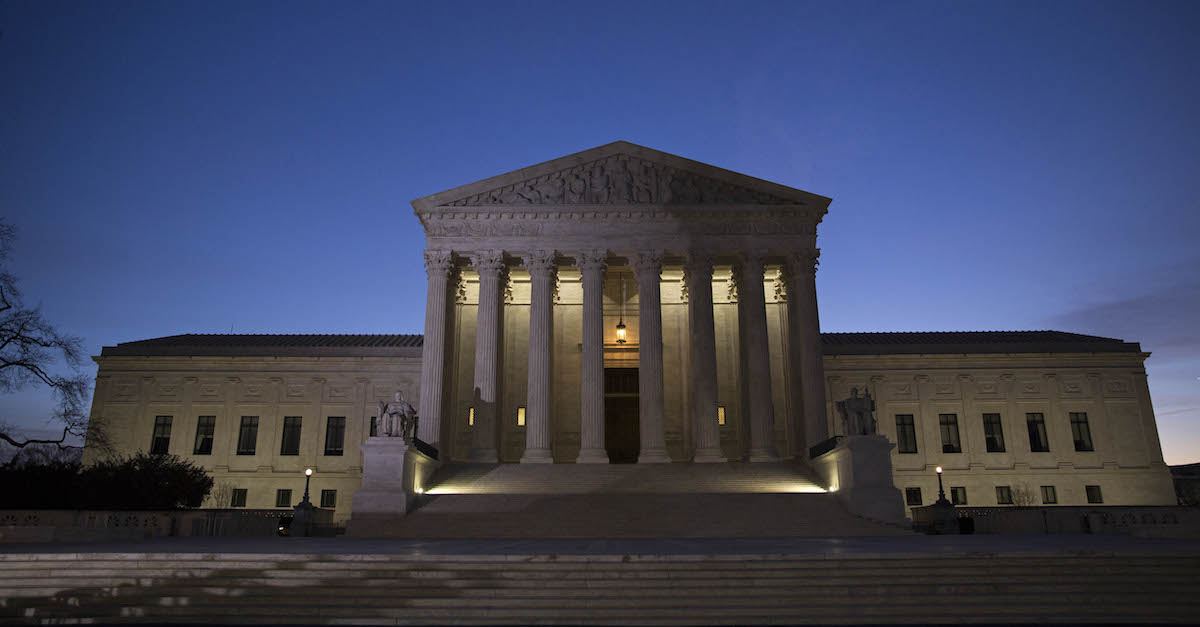
The U.S. Supreme Court on Monday evening gave new life to a South Carolina law that says voters must have a witness sign mail-in ballots for the upcoming November general election.
In a brief, half-page order, the nation’s high court reinstated the requirement pending the outcome of already in-progress appellate proceedings. Justice Brett Kavanaugh wrote separately to explain his vote.
The witness requirement was struck down by a South Carolina district court in late May of this year as an inappropriate burden on voters amid the ongoing novel coronavirus (COVID-19) pandemic.
Democrats sued to have the witness requirement rescinded while Republican officials in the Palmetto State claimed the requirement was a burden that is necessary to protect against potential fraud.
Siding with the voting rights plaintiffs, the U.S. District Court for the District of South Carolina said, “the burdens placed upon [voters] by the Witness Requirement far outweigh the imprecise, and (as admitted by [state electoral officials] Defendants) ineffective, state interests of combating voter fraud and protecting voting integrity.”
The litigation, which began in April of this year, was initiated by a coalition of attorneys for the American Civil Liberties Union (ACLU), the ACLU of South Carolina, and the NAACP Legal Defense and Educational Fund. The GOP defendants continued litigation after their loss in district court and ultimately moved for the Supreme Court to place the case on their so-called “shadow docket.”
The term, coined by University of Chicago Law Professor William Baude, refers to emergency orders and other decisions that have real world implications but have not actually been argued on the merits before the full court. A form of legal brinkmanship, the Trump administration has been adept at overturning lower court rulings by directly appealing rulings to the Supreme Court. The current makeup of the court, led by conservative Chief Justice John Roberts, has easily facilitated this aggressive legal strategy.
When a lower court has issued an injunction blocking any given controversial administration policy, such as the Muslim-majority country-focused travel ban, the Supreme Court has allowed the policy to stay in effect pending its ultimate disposition by the nine justices themselves, giving the administration ample time to cure the ban’s original legal deficiencies. In fact, the administration has made upwards of 30 such requests and the conservative-dominated court has granted them in a majority of cases.
The process of winning by way of the high court’s shadow docket is an effective and entirely legal end-run around the typical legal processes reliant upon norms that view the judiciary as an insulated and non-political branch of government.
The South Carolina witness requirement is more of the same. In this instance, Executive Director of the South Carolina State Election Commission Marci Andino, a Republican, appealed the lower court’s ruling to the appellate level but also sought to short-circuit the voting rights win by appealing directly to her ideological peers on the Supreme Court. In less than three days, these peers answered the call.
The district court’s ruling enjoined South Carolina election officials from enforcing the witness requirement, but the high court’s Monday night opinion stayed that injunction–meaning that ballots cast after the opinion was issued are subject to being rejected.
Hundreds of thousands of ballots, however, have already been mailed to voters and nearly 20,000 ballots have been returned. The court’s decision allows a tiny window of leeway for ballots still in the mail. The court notes that “any ballots cast before this stay issues and received within two days of this order may not be rejected for failing to comply with the witness requirement.”
In other words, as long as a ballot was in the mail and is received by October 7, the witness requirement cannot legally be used as a basis for such ballots being rejected.
[image via Drew Angerer/Getty Images]